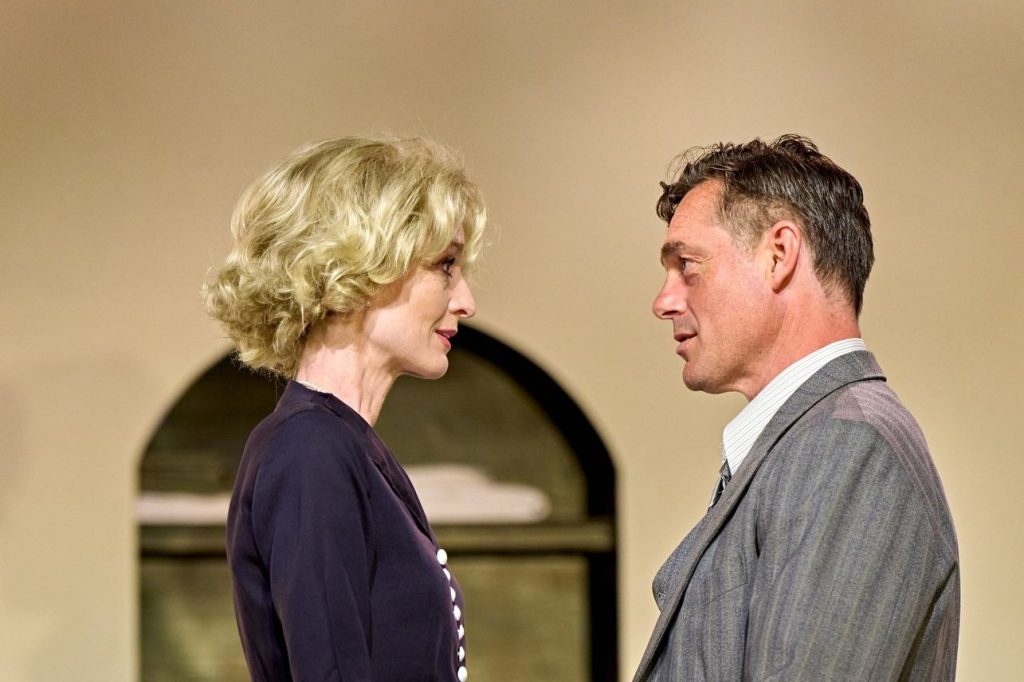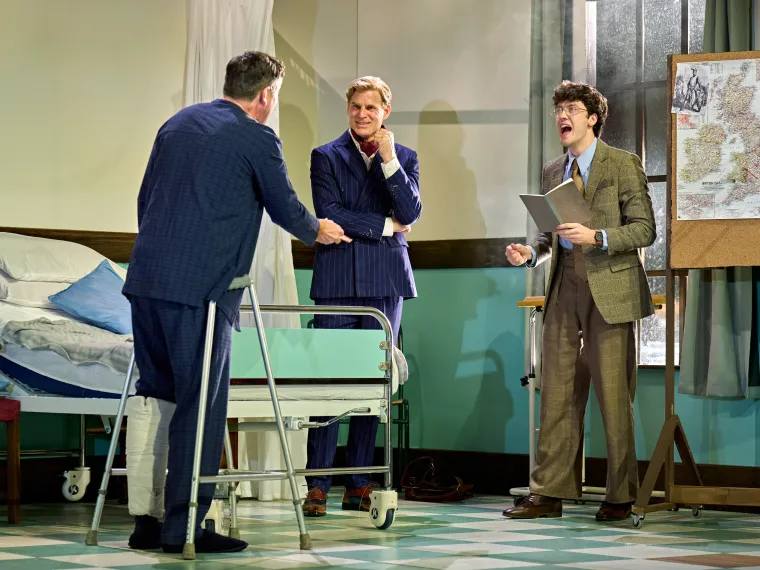The Daughter of Time at Charing Cross Theatre

The Daughter of Time is based on the book by Josephine Tey and adapted for the stage by M. Kilburg Reedy and it makes its debut at the Charing Cross Theatre. We meet Inspector Alan Grant in hospital who finds himself investigating the alleged crimes of King Richard III including the murder of the Princes in the Tower. Intertwined with this is the fact that 2 Shakespearian actors, one who is currently playing the King gets swept into the investigation, as does Nurses that are tending to Grant, Inspector Grants colleague Sergeant Williams and budding historian Brent Carradine but all with very different motives for their involvement.
The show itself whilst it has an interesting premise relies a lot on the characters visiting Grant’s hospital room and Grant simply explaining his findings from his hospital bed and piecing the puzzle together from various historical sources. This means that there is more explanation that action in the play and there is very little jeopardy, the biggest critique of his theory is a nurse with an interest in history and Grant’s boss who is looking to understand if he can go back to duty when he is physically fit enough.
The explanation behind Richard III and the historical context requires a huge amount of concentration with names, family ties and more all thrown at the audience but even with a family tree in the programme to help it became difficult to follow at times and as a result a play that needs undivided attention which with a running time of 2 hours and 45 minutes was a big ask. It feels more like a lecture than a play at points and whilst it may have felt like an innovative lecture it felt like a dry play.
There are some plot points outside of Richard III guilt, mainly around Grant and Shakespearian actress Maria Halland and her ploy to ensure that he sees how much he loves her, however these plot points failed to ignite much interest and didn’t add the jeopardy that they were maybe looking for by adding this plot point.
The characters were thinly drawn so those playing them were left with little to do with them. Rob Pomfret played Alan Grant and it is clear that no criticism can be levied at his door for the failings of the show or the thinly drawn characters with Pomfret doing his best with what he was given, especially as he was confined to his bed for Act 1. Similarly the rest of the cast struggled with the same challenge, Nurse Ingham played by Hafsa Abbasi and Nurse Darroll played by Janna Fox brought some charm to the roles but Nigel Templeton feels so thinly drawn that he is a caricature rather than a character I can invest in so Noah Huntley had an uphill battle in this role although some of his moments of comedy provided some much needed light relief for the show.
Whilst The Daughter of Time makes for an interesting history lecture about the use of sources it shows that not all well respected books transfer well to the stage and that plays and lectures require very different components to be successful.
The Daughter of Time is currently booking until the 13th September. You can find out more about The Daughter of Time at Charing Cross Theatre on their website.
If you like this review you might also like my review of Witness for the Prosecution, Stranger Things The First Shadow and Giant.


